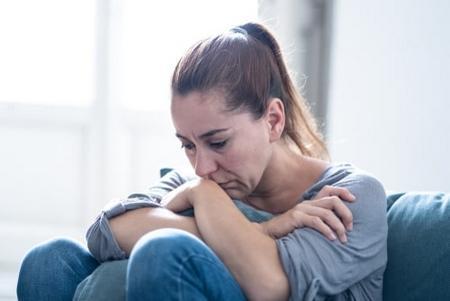Understanding Available Remedies in an Illinois Order of Protection
 Nobody ever thinks that they will become a victim of domestic violence until it happens to them. Unfortunately, domestic violence happens much more frequently than you may expect. According to the National Coalition Against Domestic Violence, more than 10 million people in the United States are victims of domestic violence each year. In 2019, there were 193,800 domestic violence calls made to the Chicago Police Department alone, along with 24,400 calls made to the Illinois Domestic Violence Hotline, according to data from The Network: Advocating Against Domestic Violence, an organization dedicated to helping victims of domestic abuse. Many victims of domestic violence never seek help, but the ones who do have options available to keep themselves and their families safe. One widely used method is petitioning for an order of protection from the abuser.
Nobody ever thinks that they will become a victim of domestic violence until it happens to them. Unfortunately, domestic violence happens much more frequently than you may expect. According to the National Coalition Against Domestic Violence, more than 10 million people in the United States are victims of domestic violence each year. In 2019, there were 193,800 domestic violence calls made to the Chicago Police Department alone, along with 24,400 calls made to the Illinois Domestic Violence Hotline, according to data from The Network: Advocating Against Domestic Violence, an organization dedicated to helping victims of domestic abuse. Many victims of domestic violence never seek help, but the ones who do have options available to keep themselves and their families safe. One widely used method is petitioning for an order of protection from the abuser.
What is an Order of Protection?
An order of protection is a legal order used in domestic violence cases that requires an alleged abuser to do certain things or prohibits them from doing certain things. Orders of protection can be issued in response to a variety of actions on the part of a family or household member, including physical abuse, harassment, intimidation, interference with personal liberty, or willful deprivation. Orders of protection exist to provide protection and other solutions designed to help victims.
Potential Remedies in an Order of Protection
When an order of protection is filed, you can request certain remedies to be included in the order. Remedies can vary in subject matter, but some of the most common remedies used include:
-
Ordering the abuser to cease abusive actions. All orders of protection contain an order from the court stating that the respondent is to stop all abusive behaviors toward the victim. This includes any physical, emotional, and sexual abuse, as well as harassment, stalking, and intimidation.
-
Granting exclusive possession of your home. If the judge finds that the abuser would be a danger to you or your family, they can grant you exclusive possession of your home, even if the alleged abuser lives there. This means the alleged abuser would be prohibited from living there while the order is in effect.
-
Ordering the abuser to stay away from you. In some cases, a “restraining order,” or “stay away order” is issued to prevent the alleged abuser from being near you, your family, your residence, or your place of employment.
-
Ordering the abuser to give back personal possessions or pets. If personal property has been taken by the alleged abuser, the court can order them to return your personal property. This can also include pets and other companion animals.
-
Ordering the abuser to attend counseling or rehabilitation. In many cases that involve alcohol or drug abuse, the court will order the alleged abuser to attend some sort of counseling or rehabilitation program.
-
Ordering the abuser to surrender firearms. If the alleged abuser owns any firearms, they are required to relinquish them. Individuals who are subject to active orders of protection cannot legally own or possess firearms.
Contact Our Kane County Family Law Attorneys
Domestic violence and abuse can severely impact a victim, especially if they do not receive help. If you are experiencing domestic violence in your household and you wish to seek protection, our compassionate, persistent St. Charles, IL family law lawyers would be happy to assist you. Contact our office today at 630-584-4800 to schedule a free, confidential consultation to discover what we can do for you.
Sources:
https://ncadv.org/STATISTICS
https://the-network.org/wp-content/uploads/2020/07/Data-Report-State-of-Domestic-Violence-in-Illinois.pdf
https://www.ilga.gov/legislation/ilcs/ilcs4.asp?DocName=075000600HArt%2E+II&ActID=2100&ChapterID=59&SeqStart=500000&SeqEnd=4200000












